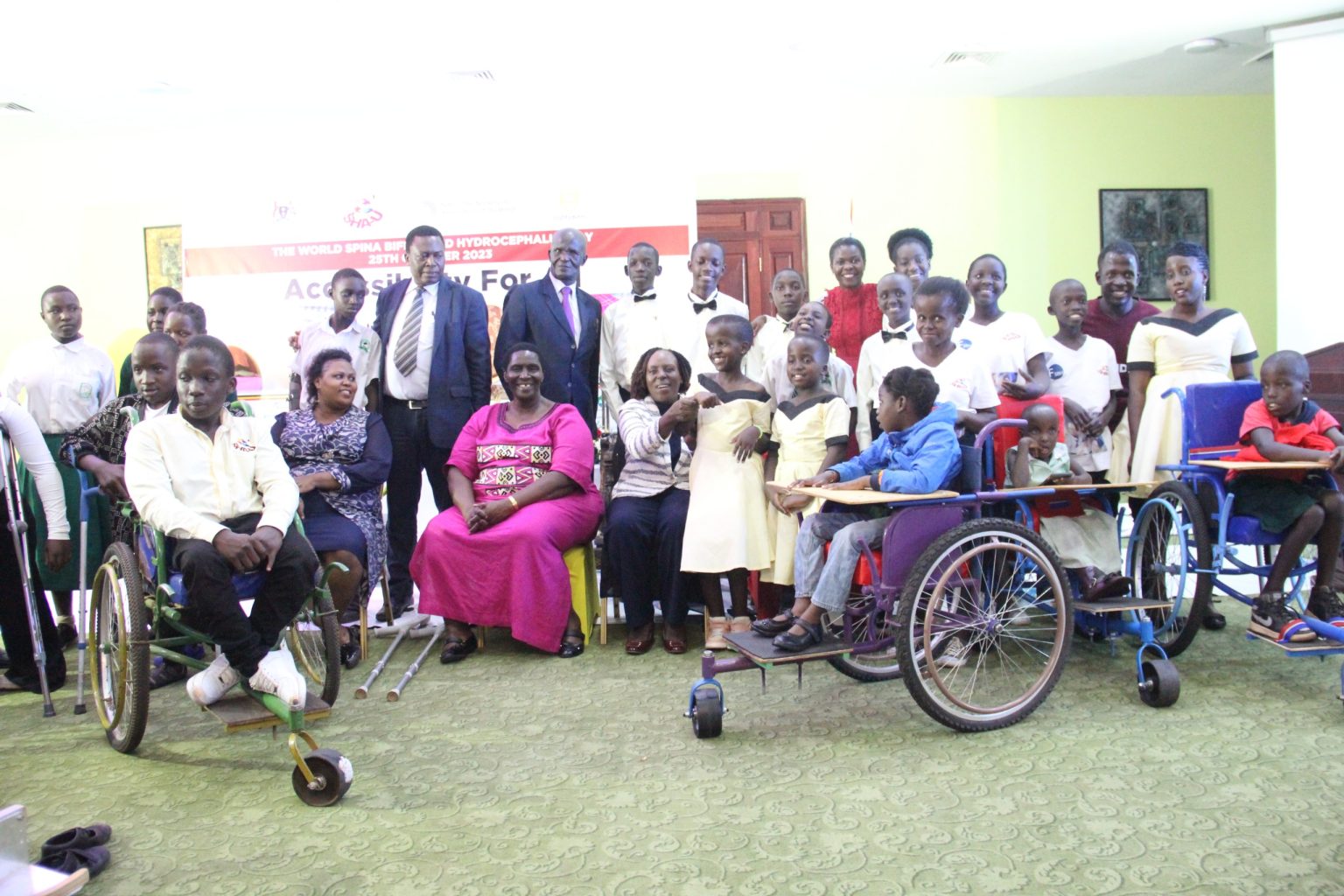Business
Government Commits to Introducing New Disability Policy on Spina Bifida and Hydrocephalus Day

The Ugandan government has reaffirmed its commitment to improving accessibility to services for individuals with Spina Bifida and Hydrocephalus conditions. This pledge is part of a broader initiative, the “Blueprint on Disability,” which aims to address various challenges faced by persons with disabilities and reform taxation policies impacting this community.
Hon. Asamo Hellen Grace, the Minister of State for Disability Affairs, made this commitment during the commemoration of World Spina Bifida and Hydrocephalus Day 2023, held in Kampala under the theme “Accessibility for All: Empowering Lives, Embracing Differences.”
Spina Bifida, a congenital disability, results from the incomplete formation of the spinal cord and vertebrae. It is a neural tube defect (NTD) stemming from issues in early pregnancy, typically within the first 25 days. Hydrocephalus, often referred to as ‘water on the brain,’ is caused by infections in the early neonatal period and has been a long-standing challenge in Uganda, affecting thousands of infants annually.

Minister Asamo Hellen stressed the government’s commitment to providing more meaningful services to persons with disabilities and the completion of the Blueprint on Disability, as requested by President Museveni during the International Day for Persons with Disabilities in 2021. She encouraged input from all stakeholders to enrich this document and create a reference point for disability-related service delivery. Additionally, she called for collaboration to enhance services, prevent duplication, and optimize resource allocation across various ministries and NGOs.
Asamo emphasized the need to ensure equal opportunities for individuals with disabilities to thrive and contribute to society. She underlined the core mission of empowering persons with Spina Bifida, Hydrocephalus, and other disabilities, emphasizing the importance of access to quality healthcare, specialized support services, assistive devices, and inclusive education tailored to their unique needs.
Asamo appealed to persons with disabilities and their parents to adopt a positive attitude, encourage the potential and talents of individuals with disabilities, and avoid overprotectiveness. She also urged Members of Parliament to be mindful of the impact of taxation on persons with disabilities, citing an example of an 18% tax increase on diapers in the Value Added Tax Amendments for FY2023-2024. Asamo called for a reconsideration of this tax in the upcoming financial year and advocated for a budget allocation for assistive devices for persons with disabilities.
The minister and the government applauded the Spina Bifida and Hydrocephalus Association of Uganda (SHAU) for its transparent approach and regular submission of reports and manuals to the government. They encouraged other organizations to follow this example.
Ruth Nalugya, the Executive Director of the Spina Bifida and Hydrocephalus Association of Uganda, stressed the importance of prevention, early diagnosis, and accessible treatment. She called for the expansion of rehabilitation healthcare services to community health facilities to facilitate access and early interventions.
Statistics indicate that 11.7% of live births in Uganda, about 10,000 annually, are affected by Spina Bifida, leading to lifelong physical and cognitive disabilities. Hydrocephalus affects over 8,000 individuals each year, with various causes. CURE Uganda provides life-saving brain surgery to over 1,900 patients annually, primarily at Cure Hospital and Mulago National Referral Hospitals.
Preventive measures include women of childbearing age incorporating folic acid into their diets, reducing the risk of neural tube defects, such as Spina Bifida, by about 70%. Consumption of 400 micrograms of folic acid daily and eating foods rich in folic acid, such as fresh vegetables, boiled eggs, liver, fruits, and fortified foods, can reduce the risk.
To prevent Hydrocephalus, it is advisable to give birth in a hospital, avoid the use of old razor blades to cut the umbilical cord, seek immediate medical assistance for babies with fever or convulsions, avoid applying cow dung on the umbilical stump, and ensure adequate treatment for neonatal infections.




